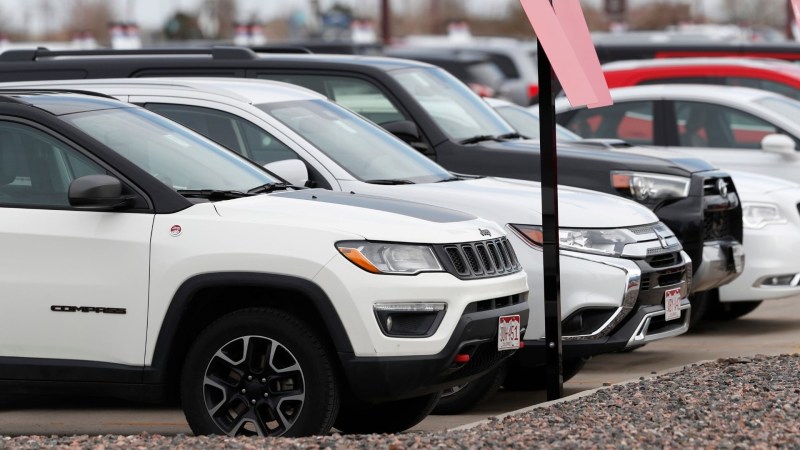

We may earn revenue from the products available on this page and participate in affiliate programs. Learn more ›
This week the American Automobile Association (AAA; you might know it as the roadside service subscription that sends you coupons) announced that you can buy its car batteries from NAPA Auto Parts stores. If you’re a member and need a battery but don’t want to wait on a mobile installer, this is actually good to know.
Normally I ignore press releases that are this trivial, but there’s a specific situation I’ve found myself in where this knowledge could be beneficial. If you have AAA and you know you need a new car battery but you don’t want to spend one of your service calls or wait for one of its installers to come out to you, now you could get one of the company’s branded batteries and take advantage of its we’ll-replace-it-on-the-road warranty with an off-the-shelf unit from your local NAPA.
In my scenario, I needed a battery for my Montero and just ended up grabbing an Interstate unit. It’s good and fine, but now if I’m out driving wherever and it dies on me within warranty and I need to replace it, I have to lug it back to the auto parts chain I got it from. I could call AAA, but if they give me a new battery now, I’ll have to pay for it. Whereas if I’d run a AAA-branded one, I’d be able to get it changed out for free within warranty. Plus, in the short term, you get $22 off the retail price at NAPA, per that press release. Non-members can buy them off the shelf, but there wouldn’t really be any specific reason to choose that brand.
Naturally, if you don’t already have an opinion on the subject, you’re now wondering, “but are AAA-brand batteries any good?”
Without going off on too much of a tangent, it is my personal and generally informed opinion that car batteries basically fall into one of four categories:
- The Cheapest Option: Will be heavy, provide the minimal amount of cranking amps your car needs to start, and be sensitive to mistreatment (like being drained too much) but generally be fine for daily-driven commuter cars.
- Good and Fine: Pretty much every brand-name, “high-tier” auto parts store battery. Some examples would include Die Hard, Interstate, Super Start (O’Reilly’s brand), and yes, AAA. These are perfectly adequate for most cars, can usually tolerate being jump-started a time or two, and will have a decent warranty.
- Good and Fancy: Cool-looking batteries like Optimas tend to boast high cranking amps and might be able to tolerate longer periods of not being used, but practically speaking, these don’t offer much benefit to the average motorist.
- Super Fancy: Lithium-ion car batteries that are extremely light and insanely expensive. If you’re at the carbon-fiber hood, racing-seat, poop-before-every-drive stage of weight savings obsession, these are worth looking into. Otherwise, I wouldn’t look up the price or you’ll just make yourself sad.
Anyway, we can go deep into car battery-comparison testing another time. But regardless of what the brochures say, I’m reasonably confident that most mainstream car batteries come from the same factories and get different stickers, so if you can get a good deal on a decent one, that’d be my recommended move.
The Drive and its partners may earn a commission if you purchase a product through one of our links. Read more.















